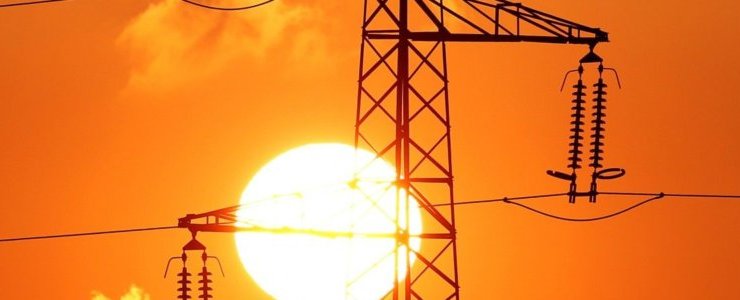Too much energy
The quarantine, which has been taking place in Ukraine for almost two months, means not only that many people have stopped going to work at the same time (and some have lost it altogether). Businesses have been shut down, offices, shops, and small businesses have been closed, and therefore energy consumption has dropped sharply.
This applies not only to Ukraine. According to the forecasts of the International Energy Agency, this year, due to the quarantine, the demand for energy resources in the world will decrease by 6%. This is many times more than during the 2008 crisis. And in developed countries, the drop in demand will be even greater - by 9% in the US and 11% in the EU.
In Ukraine, a sharp decrease in payments was added to this: only in the relatively wealthy capital, according to the mayor of Kiev Volodymyr Klitschko, debts for communal apartments increased by UAH 6 billion.
In addition, since the government changed in Ukraine at the beginning of March, the Ministry of Energy has not had a full-fledged chairman, it is led by acting duties. At the end of March, the candidacy of Olga Buslavets was discussed, but the deputies were never asked to approve her, and then the government appointed her acting minister of energy.
"As a result of a reduction in economic activity, a decline in industrial production, the market has a colossal surplus of energy and a surplus of capacity for its production, " says Mikhail Gonchar, President of the Center for Global Studies "Strategy XX ".
Cheap atomic and expensive green
The cheapest electricity is about 56.7 kopecks. per kWh - nuclear power plants are produced in Ukraine, which account for more than half of the country's electricity.
The nuclear industry also has special obligations (PSO, or Public Service Obligations) that allow people to get electricity at below market prices. The reform of the electric power industry provided that nuclear power plants should supply 60% of the generated electricity to the population - through the state enterprise "Guaranteed Buyer ". But in practice, the share of cheap energy is around 85%. Naftogaz used to suffer from a similar problem when low gas prices for the population were subsidized from the company's budget, which created a multi-billion dollar hole in its accounts.
The most expensive electricity - up to 4-5 UAH per kW /h - is produced by alternative "green" energy. In addition to the fact that "green " tariffs are several times higher, they are also fixed in euros, that is, they are insured against exchange rate fluctuations. They are now the highest in Europe.
"Green " energy has a legally guaranteed hit in the energy balance. That is, we are obliged to buy back all the green energy produced on the market. But this energy cannot operate in shunting modes. Because of this, it competes in the energy balance with the basic one - nuclear, explains Sergey Dyachenko, head of the Bureau for Comprehensive Analysis and Forecasts.
Since the end of last year, nuclear scientists have been warning about problems with settlements on the market. On the other hand, the owners of green energy facilities - foreign investors and DTEK, the energy division of the SCM holding controlled by Rinat Akhmetov - also announced problems.
In mid-April, when the quarantine "crippled " the entire economy, market participants began to sound the alarm. Energoatom stated that the company did not receive more than UAH 4 billion for the supplied electricity from the State Enterprise "Guaranteed Buyer", and therefore cannot now provide for the purchase and export of nuclear fuel.
Subsequently, the media released a letter from the Chairman of the SBU to the Chairman of the Verkhovna Rada, which spoke of the threat to energy security due to the uncontrolled growth in the production of expensive "green " electricity. All this, as stated in the letter, can lead to the accumulation of debts to the producers of alternative energy, as well as to the limitation of production at nuclear power plants, which provide the cheapest energy.
"Energoatom ": scapegoat or cash cow?
At the end of April, the Ministry of Energy drew up a new forecast electricity balance for 2020. It provides for a decrease in production at all power plants in Ukraine, with the largest decrease at nuclear power plants. But the share of renewable energy sources should grow.
The shutdown nuclear power units will simply undergo scheduled summer repairs, - explained the acting. Minister of Energy Olga Buslavets.
"There are a total of 15 nuclear power units in Ukraine. In winter, 4-5 units are repaired. In the summer, when consumption decreases, several nuclear power plants are additionally repaired. This is a normal practice, " the official said during a broadcast on one of the TV channels.
However, the chairman of the parliamentary energy committee, Andrei Gerus, interpreted the shutdown of nuclear power plants in a different way: "State " Energoatom "cannot be a cash cow for private interests. "
"I understand the position when, due to problems in the country and the economy, everyone is gradually " tightening their belts ".




